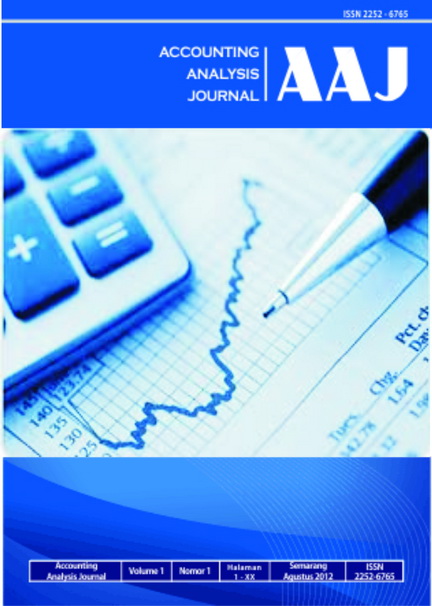Influences of Experiences, Competencies, Independence and Professional Ethics toward The Accuracy of Audit Opinion Delivery through Auditors’ Professional Skepticism as An Intervening Variabel
##plugins.themes.academic_pro.article.main##
Abstract
Penelitian ini bertujuan untuk menganalisis pengaruh pengalaman, kompetensi, independensi dan etika profesi terhadap ketepatan pemberian opini audit melalui skeptisisme profesional auditor sebagai variabel intervening. Analisis data menggunakan regresi liniear berganda bantuan program SPSS versi 21. Jenis penelitian ini merupakan penelitian deskriptif dengan alat analisis yang digunakan meliputi analisis statistik deskriptif, uji validitas, uji reliabilitas, uji normalitas, uji multikolinearitas, dan uji heteroskedastisitas. Penelitian ini menggunakan variabel intervening, sehingga metode statistik yang digunakan untuk menguji hipotesis adalah path analysis regresi linear berganda dengan uji sobel, uji R2, uji t dan uji F. Hasil penelitian ini menunjukkan bukti empiris bahwa pengalaman, kompetensi, independensi, etika profesi, dan skeptisisme professional auditor berpengaruh positif dan signifikan terhadap ketepatan pemberian opini audit, sedangkan kompetensi, independensi, dan etika profesi berpengaruh positif terhadap ketepatan pemberian opini audit dimesiasi oleh skeptisisme professional auditor, sementara pengalaman tidak berpengaruh terhadap ketepatan pemberian opini audit dimediasai oleh skeptisisme professional auditor.
Examination of financial statement auditors meant that users of financial statements to have confidence that the financial statements presented by the management company or the fair free of material misstatement and in accordance with Financial Accounting Standards (GAAP) in effect so that it can be trusted as a basis for decision making. This study aimed to analyze the influence of experience, competence, independence and professional ethics of the accuracy of the audit opinion through the provision of professional skepticism auditor as an intervening variable. The population in this study is the auditor who worked on KAP in Semarang with a total of 270 auditors. Simple Random Sampling technique is used as a sampling technique with slofin formula. The sample in this study of 65 respondents using a questionnaire method. Analysis of data using multiple linear regression SPSS version 21. This study used the intervening variables, so that the statistical methods used to test the hypothesis is a path multiple linear regression analysis to test Sobel, R2 test, t test and F test. The results of this study show empirical evidence that experience, competence, independence, professional ethics, and skepticism professional auditor positive and significant effect on the accuracy of granting audit opinion, whereas the competence, independence and professional ethics positively affects the accuracy Award audit opinion mediated by skepticism professional auditor , while the experience did not affect the accuracy of the audit opinion through the provision of professional skepticism, the auditor as an intervening variable.
